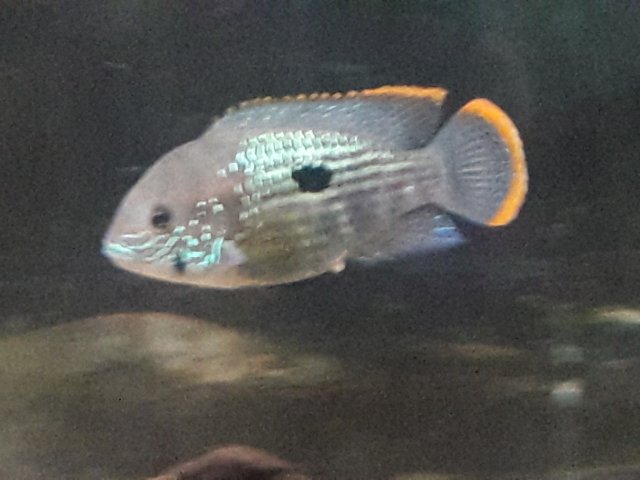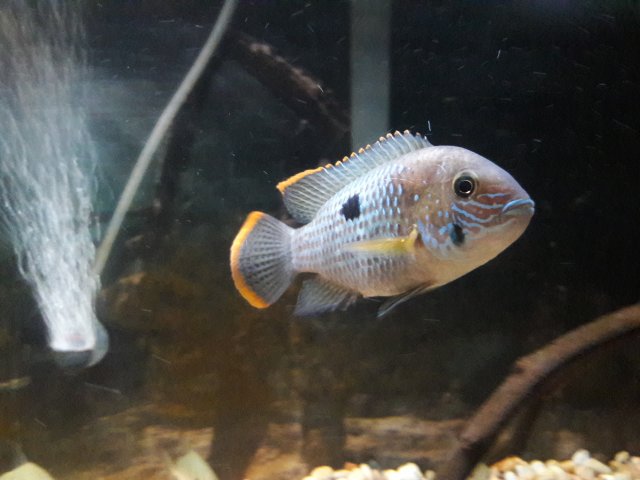I have read that female cichlids grow faster and are healthier and live longer if they don't breed or lay eggs. But in the same sentence I've read that they can become egg bound and have problems.
The reason i ask is i have a 8-9in F1 Female Festae with a infertile male Midas the female runs the tank but lately I've noticed her starting to display breeding behavior trying to lip lock with the male, tail slapping but the Midas could care less he just wants to dig and glass bang.
I would prefer to have her as a solo fish so she wont lay eggs or is she going to lay eggs regardless if there's a male present or not?
My female lives in the bottom of the tank only coming to the surface to eat, If i ditch the Midas could i add like 15-20 Columbia tetras for movement at the top TUIC has them for 3 bucks each or would they become snacks for her. OR are there recommendations for a small schooling fish for the top?
Thanks
The reason i ask is i have a 8-9in F1 Female Festae with a infertile male Midas the female runs the tank but lately I've noticed her starting to display breeding behavior trying to lip lock with the male, tail slapping but the Midas could care less he just wants to dig and glass bang.
I would prefer to have her as a solo fish so she wont lay eggs or is she going to lay eggs regardless if there's a male present or not?
My female lives in the bottom of the tank only coming to the surface to eat, If i ditch the Midas could i add like 15-20 Columbia tetras for movement at the top TUIC has them for 3 bucks each or would they become snacks for her. OR are there recommendations for a small schooling fish for the top?
Thanks




